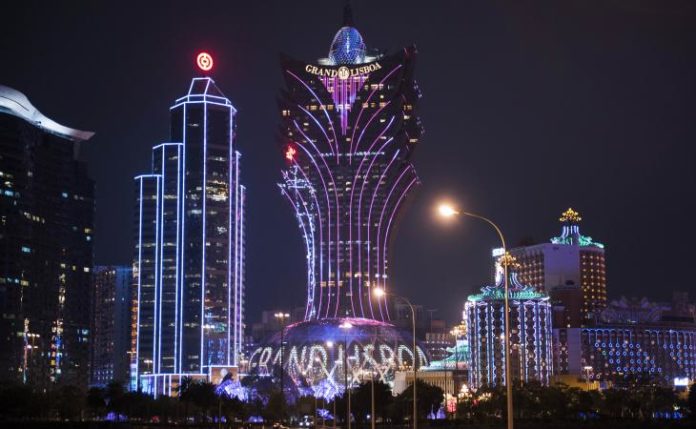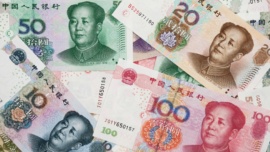The U.S. Department of State says, ‘Macau should lower the large transaction report threshold for casinos to US$3,000 (MOP24,000)’ – 4.8 per cent of the current MOP500,000 – to bring it ‘in line with international standards, in an effort to increase Anti-Money Laundering and Counter Financing of Terrorism (AML/CFT), as published in a report on Money Laundering and Financial Crimes released this month. The report suggests that the Macau Government ‘strengthen interagency co-ordination to prevent money laundering in the gaming industry’. Much of the report takes a negative viewpoint on junkets, claiming ‘much of the money funnelled through these middlemen originates from corruption, embezzlement and other illicit activities.’ It alleges that ‘organised crime, including triads, are active in the gaming services and are engaged in loan-sharking, prostitution services, etc.’ In its focus on junket activities in Macau, the report goes into depth regarding cross-border currency movements, stating that Macau presents ‘vulnerabilities for money laundering,’ as well as ‘encourages Chinese capital flight’ even going so far as to state that the current situation in the MSAR ‘fosters financial systems such as fei-chien or ‘flying money’.’ This fostering is seen to derive from the gaming sectors reliance on ‘loosely-regulated gaming promoters […] for the supply of wealthy gamblers, mostly from Mainland China.’ To be improved Suggested improvements to the system revolve around legislation to strengthen ‘Macau’s customer due diligence requirements,’ – such as compliance with legislation, accurate information on who customers are and guarding against fraud and impersonation – which ‘has been pending for over three years, as has legislation to improve the jurisdiction’s cross-border currency controls.’ This leaves Macau without, in the State Department’s opinion, ‘an effective cross-border cash declaration system.’ The United States State Department urges Macau to ‘enhance its ability to support international AML/CFT (Anti-Money Laundering/Counter Financing of Terrorism) investigations.’ A 2014 Investment Climate Statement published in June of that year by the U.S. State Department states ‘some observers […] have estimated the figure of U.S. investment [in Macau] to be US $10 billion, which would make the U.S. the number one foreign investor.’ Macau data reinforces findings Data recorded by the Financial Intelligence Office (GIF) of the MSAR Government reinforces certain claims made by the United States Department of State in its report both in the areas of money laundering activity through gaming-related activities and due diligence requirements relating to gaming promotion operators. Findings published by the GIF in its November 2015 newsletter show that 74.9 per cent of the Suspicious Transaction Reports (STR) received in the first six months of 2015 came from ‘Games of Fortune Operators’, equalling 682 reports over the six months – compared to 663 gaming related reports in the same period in 2014. The 219 STRs from Financial Institutions and Insurance Companies in the same period in 2015 accounted for only 24.1 per cent of the total. Suspicious gaming sector In its annual survey, covering activity in 2014, the GIF counted suspicious transaction reports (STR) related to gaming operators as reaching 3.6 times the amount recorded in 2007 (the first year of recorded data). Of the overall 1,812 STR reports received, ‘the gaming sector received 1,370 reports which accounted for over 75 per cent of the annual submissions’, a 20.3 per cent increase in reports from the sector compared to the previous year. This compares to only 412 reports from the financial sector. This increase in reports – the most common of which is ‘Chips conversion without/with minimal gaming activity’ – accounting for a total of 766 STR cases in 2014 (the largest type of STR recorded that year) – is reported by the Financial Intelligence Office as being ‘due to the adoption of a new policy by several gaming concessionaires on customer due diligence as well as better control of funds transfers,’ the same type of ‘due diligence’ mentioned in the State Department’s report. The Financial Intelligence Office (GIF) is one of 16 departments working together on the Interdepartmental Anti Money Laundering Working Group (AML Working Group) and co-ordinates with groups such as the Monetary Authority of Macao (AMCM), the Commission Against Corruption (CCAC), the Gaming Inspection and Co-ordination Bureau (DICJ), the Public Prosecutor’s Office (MP) and the Judiciary Police (PJ) among others. Findings of the 2014 report by the GIF show the highest amount of STRs could be related to money-laundering activities (see chart). Constant revision Macau is set to be the focus of the ‘3rd Round of Mutual Evaluation’ by the APG/GIFCS (Asia/Pacific Group on Money Laundering and Group of International Finance Centre Supervisors) – according to the report – which is ‘tentatively scheduled for late 2016’. The last time this report was conducted was in 2007 and although the ‘main objective of revising the AML/CFT Law and Administrative Regulation is to incorporate the recommended measures given in the APG/GIFCS Mutual Evaluation Report in 2007,’ despite being ‘submitted to proceed with the legal process’, many of the elements are still ‘under review’ says the 2014 report.
—
























